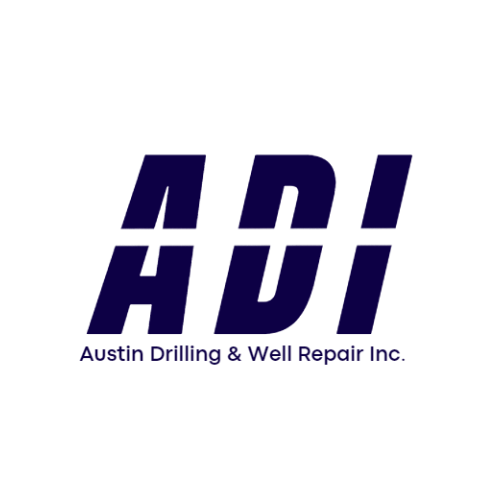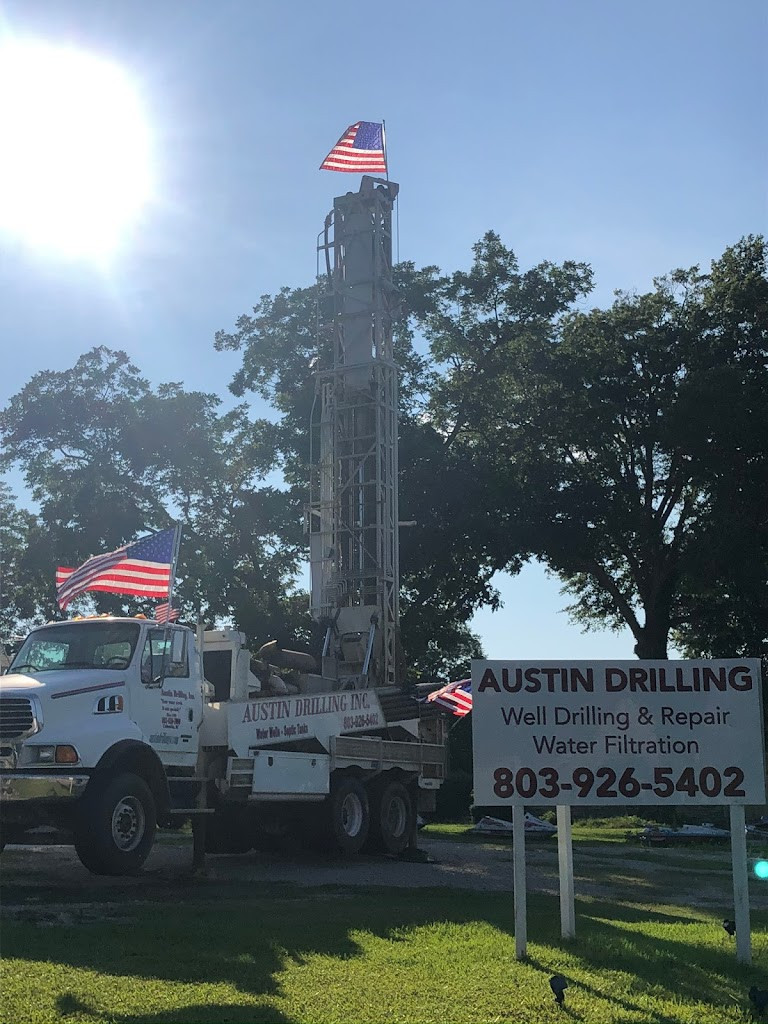Taking Action to Safeguard Well Water Quality in West Columbia, SC
West Columbia, United States - November 28, 2023 / Austin Drilling & Well Repair Inc - West Columbia, SC /
If you're a resident of West Columbia, SC, and rely on well water for your everyday needs, it's important to understand the potential sources of contamination and how to prevent them. Here's everything you need to know about water well contamination in West Columbia and how to keep your well water clean.
What are the primary sources of water well contamination in West Columbia, SC?
There are several potential sources of water well contamination in West Columbia, SC. These can include both natural and man-made contaminants that may be present in the environment or introduced through human activities. Some of the primary sources of water well contamination in this area include:
- Agricultural runoff: Fertilizers, pesticides, and other chemicals used in farming can seep into groundwater and contaminate wells.
- Improperly constructed or maintained septic systems: If not properly installed and maintained, septic tanks can leak bacteria and other harmful substances into the groundwater.
- Industrial activities: Manufacturing plants and other industrial facilities may release pollutants into the environment that can ultimately make their way into well water.
- Landfills and waste disposal sites: These areas can also be sources of contamination, as chemicals and other hazardous materials can seep into groundwater.
- Natural geologic features: In some cases, naturally occurring minerals or substances in the soil and rocks can contaminate well water.
How can I test my well water for contamination in West Columbia, SC?
The best way to determine if your well water is contaminated is by having it professionally tested. You can contact your local health department or a private laboratory to have samples of your well water tested for various contaminants, including bacteria, nitrates, pesticides, and other chemical compounds.
Some tips for testing your well water for contamination in West Columbia include:
- Test regularly: It's important to test your well water at least once a year to ensure it remains safe and free of contaminants. If you notice a change in the taste, color, or smell of your well water, it's recommended to have it tested immediately.
- Use a certified laboratory: Make sure to use a certified laboratory for testing your well water. This ensures accurate results and proper analysis by trained professionals.
- Test for specific contaminants: Depending on the sources of contamination in your area, it's important to test for specific contaminants that may be present in your well water. For example, if you live near a landfill, testing for heavy metals and other hazardous substances would be recommended.
- Follow proper sampling procedures: When collecting samples of your well water, make sure to follow proper sampling procedures to avoid contamination. This includes using clean containers and avoiding contact with the spout of the well or other potential sources of contamination.
- Keep records: It's important to keep records of your well water test results over time. This allows you to track any changes or trends and take necessary actions if needed.
Best Practices for Preventing Water Well Contamination
Preventing water well contamination in West Columbia is crucial to ensure safe drinking water for you and your family. Here are some best practices to follow:
- Proper well location and construction: The location of your well can greatly impact the quality of your drinking water. When selecting a location for your well, it is crucial to consider potential sources of contamination. It is recommended to place your well at a distance from septic tanks, livestock areas, and chemical storage facilities.
- Regular well maintenance: It's important to regularly maintain your well and its components. This includes regular inspection of the well cap, ensuring proper sealing, and checking for any signs of damage or corrosion.
- Proper disposal of hazardous materials: Any hazardous materials such as pesticides, chemicals, or paint should be disposed of properly according to local regulations. Dumping these substances down the drain or on the ground can contaminate groundwater and potentially your well water.
- Test your well regularly: As mentioned earlier, regular testing of your well water is crucial in detecting any contamination. It's recommended to test for bacteria at least once a year and nitrates every three years. Other contaminants such as heavy metals, pesticides, and volatile organic compounds should also be tested periodically.
- Properly maintain and dispose of septic systems: If you have a septic system, it's important to properly maintain and regularly pump it. A malfunctioning septic system can contaminate your well water with harmful bacteria and other contaminants.
- Be mindful of farming practices: If you live in a rural area where farming is common, be aware of the types of pesticides and fertilizers being used nearby. These chemicals can seep into the groundwater and potentially contaminate your well water.
- Monitor nearby industrial sites: If you live near an industrial site, it's important to monitor their practices and any potential contamination risks. Stay informed about any spills or incidents that may affect your well water.
- Educate yourself and others: The more informed you are about potential sources of contamination in your area, the better equipped you will be to prevent them. Educate yourself and others in your community about best practices for well water protection.
- Regularly check for any changes in taste or odor: If you notice a sudden change in the taste or odor of your well water, it's important to have it tested immediately. This could be a sign of contamination and should not be ignored.
- Be cautious when using chemicals: If you use chemicals on your property, such as pesticides or fertilizers, be sure to follow the instructions carefully and avoid overuse. These chemicals can easily seep into the groundwater and contaminate your well water.
Are there specific regulations or guidelines for wellhead protection in West Columbia, SC?
While there are no specific regulations or guidelines for wellhead protection in West Columbia, SC, the state of South Carolina does have general regulations in place to protect wells and groundwater. These regulations require that all new wells be constructed by a licensed well driller and meet certain standards for materials, construction methods, and location.
Additionally, the state also has a Well Contractor Certification Program which ensures that well drillers are trained and knowledgeable about proper well construction and maintenance. In West Columbia, there is also a local ordinance that prohibits the discharge of pollutants into the groundwater or surface water without a permit.
What should I do if I suspect my well water is contaminated in West Columbia, SC?
If you suspect your well water may be contaminated in West Columbia, SC, the first step is to have it tested by a certified laboratory. The South Carolina Department of Health and Environmental Control (DHEC) offers a list of certified labs in the state that can test for a variety of contaminants.
It's important to note that testing only provides a snapshot of your well water at one specific point in time, so it's recommended to have your well tested at least once a year to ensure ongoing safety. If the test results show contamination, it's important to take immediate action to address the issue.
Maintaining the health and well-being of ourselves and our communities relies heavily on having access to safe and clean drinking water. It is crucial to prioritize measures that ensure the quality of our water supply for everyone's benefit.
In West Columbia, SC, where many rely on well water as their primary source of drinking water, it's important to be aware of the potential sources of contamination and take proactive measures to prevent it.
By following best practices for well protection and regularly testing your well water, you can help ensure that your drinking water remains safe. And if you do suspect contamination, taking immediate action can make all the difference in protecting yourself and those around you.
Contact Your Local Well Drilling Company - Trust Austin Drilling for the Job!
Take the first step towards protecting your well water by scheduling a test with a certified lab today. And don't forget to regularly maintain and monitor your well to ensure long-term safety for you and your community. Safe drinking water is everyone's responsibility, so let's work together to keep our wells clean in West Columbia, SC.
So whether you're a homeowner, farmer, or community member, remember to prioritize the safety and quality of your well water. Your health and the health of those around you depend on it.
With a little knowledge and proactive effort, we can make a big difference in ensuring clean and safe well water for all. Call Austin Drilling & Well Repair and let's protect our wells together!

Contact Information:
Austin Drilling & Well Repair Inc - West Columbia, SC
2584 Fish Hatchery Rd
West Columbia, SC 29172
United States
Donald Austin
https://austindrillingsc.com/
Original Source: https://austindrillingsc.com/media-room/#/media-room

